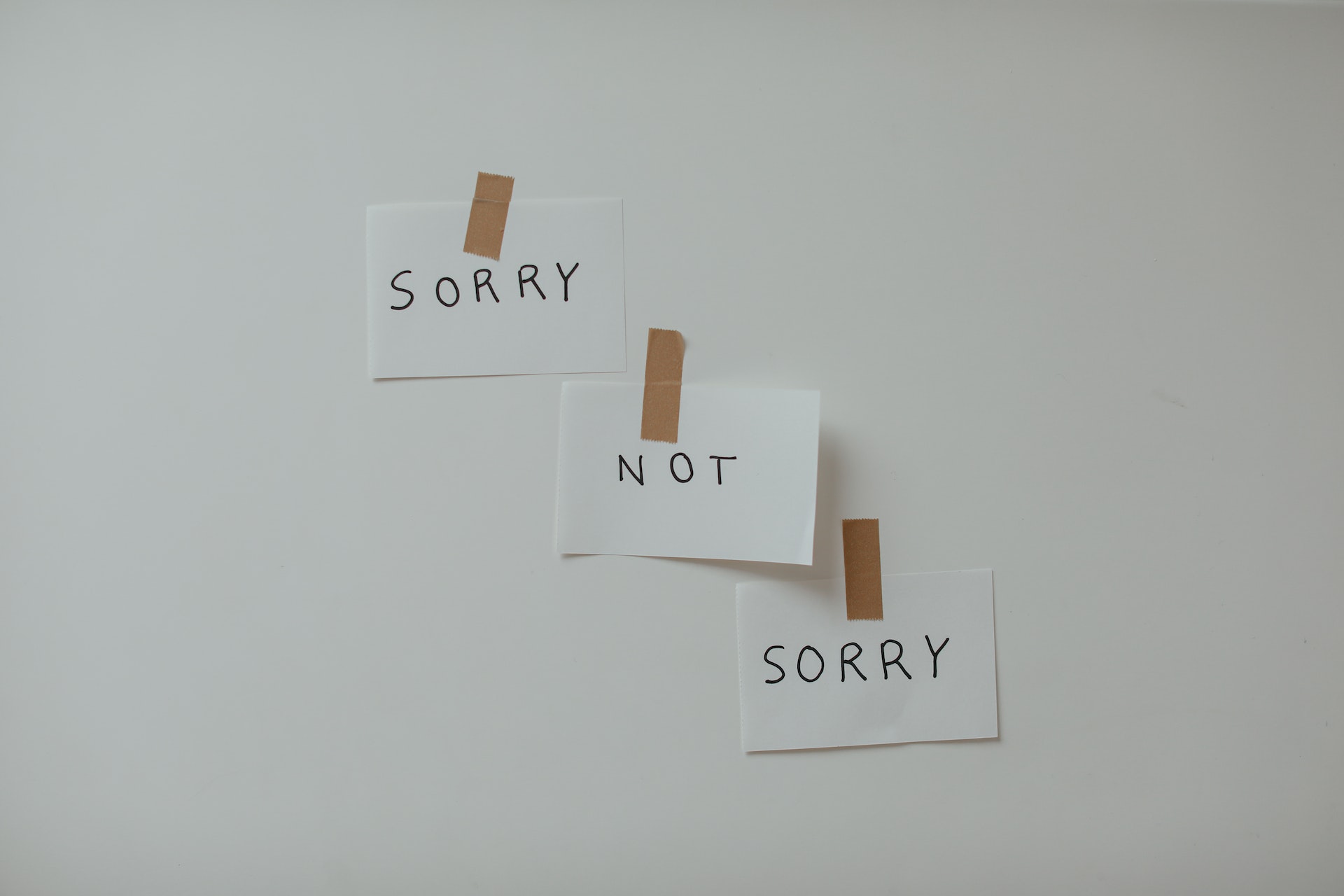As human beings, we tend to apologize a lot. We apologize for things we can’t control, for our emotions, and for things that aren’t even our fault. Apologizing can be a sign of politeness and empathy, but it can also be a way of diminishing ourselves and our own needs. Here are five things we should stop apologizing for:
- Our emotions.
We are entitled to our emotions, whether they are positive or negative. We should not apologize for feeling happy, sad, angry, or any other emotion. Instead, we should acknowledge our emotions and express them in healthy ways.
- Saying no.
Saying no is a way of setting healthy boundaries and taking care of ourselves. We should not apologize for saying no to things that don’t align with our values or priorities.
- Taking care of ourselves.
Self-care is crucial for our well-being, yet we often apologize for taking time to rest, exercise, or engage in activities that bring us joy. We should not apologize for taking care of ourselves, as it is essential for our physical and mental health.
- Asking for what we need.
We all have needs, whether they are emotional, physical, or material. We should not apologize for asking for what we need, whether it’s support, help, or a specific resource.
- Being ourselves.
We should never apologize for being who we are. We are all unique individuals with our own strengths and weaknesses, and we should embrace and celebrate our individuality.
- Setting standards for our relationships.
We all have different expectations and standards when it comes to our relationships, whether it’s with friends, family, or romantic partners. We should not apologize for setting boundaries and standards for how we want to be treated in our relationships.
- Pursuing our goals and dreams.
Our goals and dreams are what give us direction and purpose in life. We should not apologize for pursuing them, even if it means taking risks or making sacrifices.
- Asking for help.
Asking for help is a sign of strength, not weakness. We should not apologize for asking for help when we need it, whether it’s from a friend, family member, or professional.
- Making mistakes.
We all make mistakes, and it’s a natural part of the learning process. We should not apologize excessively or beat ourselves up for making mistakes. Instead, we should learn from them and move forward.
- Expressing our opinions.
We all have different opinions and perspectives, and we should feel free to express them without fear of judgment or backlash. We should not apologize for having our own thoughts and beliefs, as long as we express them respectfully and with an open mind.
We should stop apologizing for these ten things. By doing so, we can empower ourselves to set healthy boundaries, prioritize self-care, and express our true selves. Remember, it’s okay to be imperfect and to have needs. We should embrace ourselves fully and unapologetically, and never apologize for being who we are. We are all worthy of respect, care, and self-expression, and we should never apologize for being true to ourselves. By letting go of unnecessary apologies, we can empower ourselves to live more authentically and confidently.

